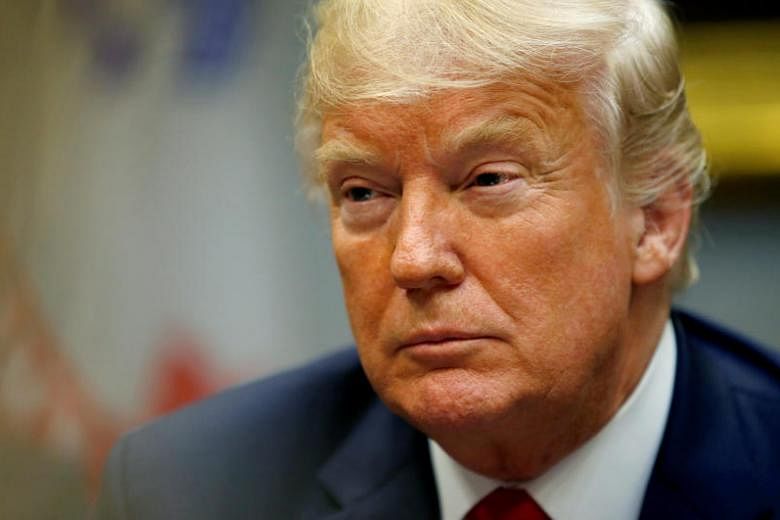TOKYO (WASHINGTON POST) - It's all China's fault, at least according to President Donald Trump, who again blamed Beijing late on Wednesday (Aug 29) for the impasse in negotiations with Pyongyang over its nuclear and missile programme.
But several experts said the real problem lies much closer to home, in Mr Trump's casual approach to negotiations with the North Koreans, and the vague, verbal promises exchanged at his meeting with the North Korean leader in Singapore in June.
Vox reported on Wednesday that Mr Trump told Mr Kim Jong Un in Singapore that he'd sign a declaration to end the Korean War soon after their meeting, citing multiple sources familiar with the negotiations.
Since then, the Trump administration has repeatedly asked Pyongyang to first dismantle most of its nuclear arsenal. That explains the current stalemate in negotiations, Vox reported.
"If that's true, that's why the North Koreans are dragging their feet," said Dr Robert Kelly, a professor of political science at Pusan National University in South Korea. "That's Trump's blunder."
North Korea believes Mr Trump made the same promise - to declare an end to the war - to Mr Kim Yong Chol, a top North Korean official close to Mr Kim Jong Un, at the White House on June 1, 11 days before the summit, Vox also reported.
"The bill comes due," tweeted Dr Vipin Narang, an associate professor of political science at MIT. "This was exactly the risk of Trump freelancing in Singapore: making promises to Kim Jong Un (and earlier Kim Yong Chol) that the Administration could not and would not deliver on."
"Things may quickly heat back up, and this one is squarely on Trump," he added.
Secretary of State Mike Pompeo, by contrast, has asked Pyongyang to surrender 60 to 70 per cent of its nuclear warheads in six to eight months, according to Vox, explaining why he was greeted with such hostility in North Korean state media.
Mr Trump's decision to call off Mr Pompeo's latest trip to Pyongyang came after the North Koreans warned in a letter to Mr Pompeo last week that talks with the United States risked falling apart, Reuters reported.
"They basically don't think we're doing enough," a senior US official told Reuters.
He said that the tone of the letter was "if you're not willing to give something, then don't come".
Mr Suh Hoon, director of South Korea's National Intelligence Service (NIS), told a closed-door parliamentary hearing on Tuesday that Mr Pompeo's trip was cancelled over the competing demands from the two sides.
"As determined by the NIS, he is unable to go because North Korea's demand for the end-of-war declaration clashed with the US urging that denuclearisation be declared first," Mr Suh was quoted as saying by lawmaker Kim Min-Ki.
Pusan National University's Dr Kelly said Mr Trump had offered the North Koreans a huge amount in Singapore, including the suspension of military exercises with South Korea, without getting concrete promises in return.
His lack of understanding of the issues, and his lack of attention to detail has finally "collided with the reality of North Korea", Dr Kelly said.
"They are not going to completely denuclearise ever. Nobody actually believes that. They took years developing these weapons, they are not going to give them up because Donald Trump says some stuff on Twitter."
At his press conference after the Singapore summit, Mr Trump had been asked about the possibility of a peace agreement to formally end the 1950-53 Korean war.
"What we signed today had a lot of things included," he said. "You had things that were not included that we got after the deal was signed."
When he called off Mr Pompeo's planned visit last week, Mr Trump had blamed a lack of progress toward denuclearisation, but also said China was not helping as much as in the past because of the trade dispute between Beijing and Washington.
It was a theme he returned to Wednesday.
"I would imagine the trade war with China isn't helping," Dr Kelly added. "I would imagine the Chinese aren't being helpful and that probably hurts at the margins, but the real problem is the incompetence of the Trump administration."

